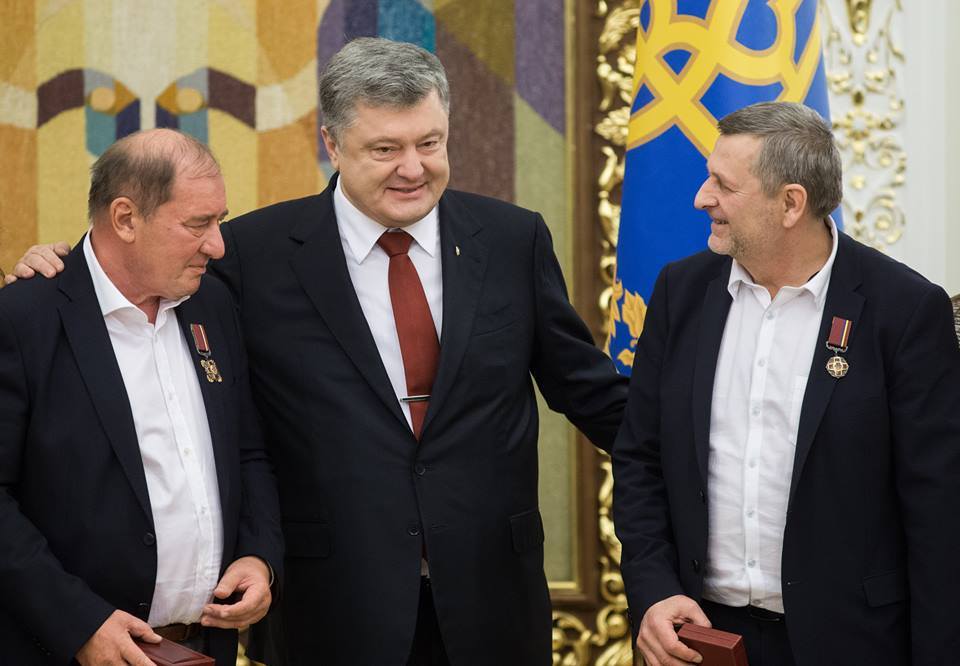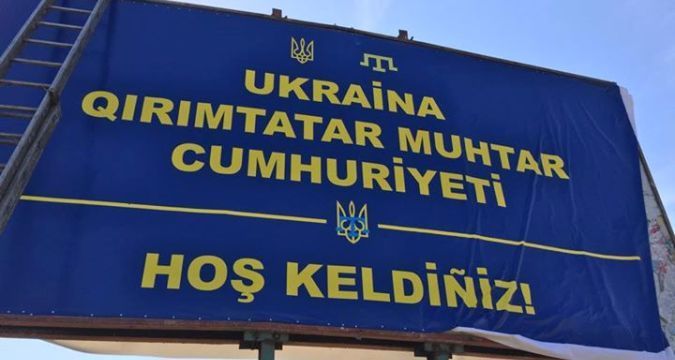How often a loss makes us long for those we lost. To lose your homeland only to understand how great was your love for it! People leave Crimea. Smart, strong, devoted people leave. Those who can not keep quiet, those who are used to acting, those who want to decide their future themselves. And it is difficult to leave. To leave means to abandon your home, cut off the friendships and contacts, forfeit nurtured life plans. Those, who are not scared to change their lifestyle radically, leave. I am not one of them.
Why do I stay? There are three main reasons. the first reason is very emotional. Crimea is MINE. I love this land so much, that my soul is inseparable from it, my heart is lost somewhere among the hills of Koktebel, and I dream of serpentine mountain roads in winter. How can I leave? Due to my great love for my land, I chose to become a tour guide, since I wanted to share my love with the guests of the peninsula and instill love for all things Crimean in them, too.
The second reason is money. My family cannot sell our house, and we are afraid to lock it up and abandon it for indefinite amount of time. We fear that our own neighbors will simply take it apart, brick by brick. When I plant flowers before our gates, somebody comes at night and steals them. Seriously, you would think that it is much much easier to ask for a flower instead. I would gladly give them some. But for them, stealing feels more natural than asking politely.
The third reason is irrational. The events around me seem unreal. I do not believe that Crimea will remain with Russia, even if it is buried in striped Russian flags now, and even if some establishments already refuse to accept hryvnias. I don't accept Russia and I don't believe that it is here to stay. It is very difficult,– not to yield and to keep your sanity at the same time.
I see changes in my friends who did not want Russia here. Their faces look 10 years older compared to barely a month before. It is impossible to conceal the gravity in their eyes and voice, even with carefully applied make-up and a new haircut. My face has changed as well. I realized this recently, when I met an old friend whom I had not seen for more than a year. When she saw me, she immediately started consoling me. “It will be fine," she said. I replied, that I was fine already and that she had no reason to worry about me. “Ah," she said then, "but I saw you last year.” I then understood that I had the face of a person who had suffered a loss. Not the loss of close friend or relative, but the loss of my home.
I never considered myself a fervent patriot. There was Ukraine, my home country, and there was Crimea, my home land. They just were. Now I have to choose which one to lose – my land or my country. If I stay in Crimea, I will lose my country. And if I leave, I will lose my home land. Leaving means simply trading one wound for another. They are like parents – there are two of them. And now I am facing the same question that small children sometimes face: "Whom do you love more, your mom or your dad?” It pains me to see that there are not many around me who share my feelings on the matter. Or is it just my stupid luck?
Crimean society has been a victim of forced deportations and semi-voluntary moving in and out for a very long time. As a result, Crimea is now packed with people who do not really feel for this land. They live here, they use the land and they will sell it without a second thought, to anyone who promises to raise their pittance. And now they are very happy at the prospect of such a raise. They attach Russian tricolors to their cars (often more than one!) and cheerfully discuss the freshest bits of Russian propaganda – such as, “Ukrainian revanchists murdering peace-loving people in Sloviansk.” And they confidently wait for the crowds of Russian tourists. Speaking of Russian tourists, some did show up for May holidays. The main reason for this? “Crimea is now ours, so I thought it a good idea to take a look at it," one of them told me during a tour. Nobody seems to notice that the overall the number of tourists dropped. That's because people generally don't come in big numbers in May anywsy, as the water in the sea is still too cold to swim. In July, at the peak of the season, the drop will become very obvious.
But I'll bet that even this drop will not bring everyone to their senses. I am sure that by July the TV boxes will have shoved some new kind of chow into people's brains. Russian propaganda is slowly seeping into the strongest minds. Recently, I told people in my office that, in Russia, Putin was a person, but a religious symbol. This caused quite a stir. When feelings calmed down again, I was subjected to a lecture about Putin and his role in Russian revolution. “You do not get it! “ they shouted. “Only a very strong man can hold such a great country together!” These sentiments came from people whom I had known all my life and who, I am sure, did not think about Putin and Russia at all only half a year ago. It is amazing how little it takes to deprive a person of their brain. These days, I try to avoid our office as much as humanly possible. I just can not stomach their fervent belief that the Right Sector organized the Odesa massacre. My colleagues are very busy right now: they are actively preparing to receive Russian tourists. Not Ukrainian tourists – my colleagues are convinced that they won't come "because of the civil war and daily atrocities all over Ukraine."
The quality of life gradually deteriorates. But this deterioration is slow, so people are adjusting to it calmly. Their complaints about everyday problems invariably end with a determination to wait and persevere through the hardships. They are convinced that the problems will resolve themselves "after the transition period ends." How long before their patience runs out? I don't know. A year? Maybe more? But it will take at least a summer of disillusionment and a hard, hungry winter. Then, perhaps, the “electorate” will realize that there won't be any Russian-made improvement, that prices will continue to grow and life will keep getting harder day after day. It will help if these changes take place against a background of positive change in Ukraine. When there are shootings and unrest in the eastern oblast, Crimea represents an island of calm and stability, and people are happy to have “escaped from the dreadful Ukrainian junta” to happy, stable Russia with its great and mighty Putin, who will protect them from everything. Those who understand hat this is just an illusion do not speak their minds. Like me, they wait in silence.
I watch my surroundings and think: let them play Russia, let them run around with their flags. They're happy. They don't yet understand that God sometimes punishes you by granting you your wishes. Yes, it's hard. Life is getting difficult, expenses are growing, people are losing their jobs and sustenance, and the number of those whose brains have grown numb grows exponentially.
But I tell myself that this is also a necessary experience: loss teaches you to value what you have. To lose your country means to understand how deep was your love for it. To understand that your society is gravely ill, to discard old illusions and to start a new life. I know that the foreseeable future will not be bright. But that's the way it is. That's the way it has to be. We. Just. Have. To. Get. Through. This.
Translated by Anna Palagina, edited by Lidia Wolanskyj
Source: Crimea SOS




